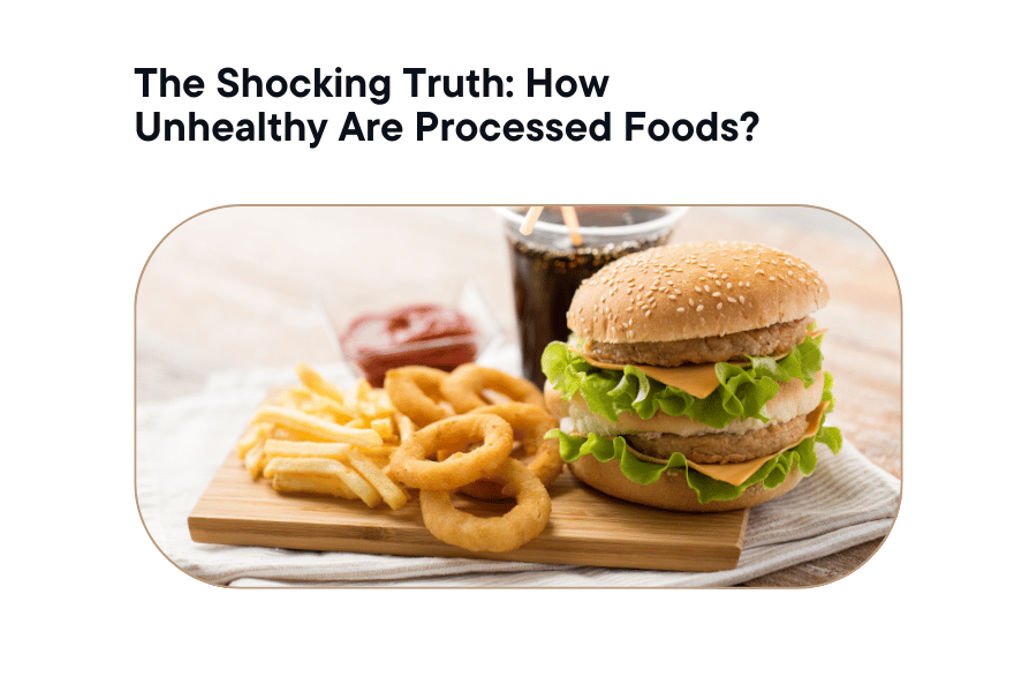Defining the Processed Food Spectrum: Not All Created Equal
Before dissecting the health concerns, it’s crucial to differentiate between the various levels of processing within this broad category. Not all processed foods are created equal, and understanding their distinctions is vital for making informed choices. Here’s a breakdown of the spectrum:
Levels of Processed Food
| Category | Description | Examples |
|---|---|---|
| Minimally processed | Fruits and vegetables washed, frozen, or canned, retaining most nutrients. | Frozen berries, canned beans, bagged salad |
| Moderately processed | Dairy products like cheese and yogurt, cooked meats, nuts, and grains. | Cheese, deli meats, roasted nuts, brown rice |
| Highly processed | Fruits and vegetables washed, frozen, or canned, retain most nutrients. | Cookies, crackers, frozen pizzas, sports drinks, instant oatmeal |
| Ultra-processed | Industrially formulated products with little resemblance to their original ingredients, often high in added sugar, salt, and unhealthy fats. | Hot dogs, instant noodles, sugary cereals, packaged desserts, chicken nuggets |
It’s the last two categories, highly processed and ultra-processed foods, that raise the most significant health concerns.
A Multifaceted Impact
1. Weight Gain and Obesity
These calorie-dense foods are often low in satiety, leading to overconsumption and promoting weight gain. The high sugar and unhealthy fat content further contribute to this by disrupting metabolic processes and promoting fat storage. Studies suggest a strong correlation between increased consumption of ultra-processed foods and higher body mass index (BMI).
2. Heart Disease and Stroke
The excessive sodium and unhealthy fats found in these foods can elevate blood pressure and contribute to the buildup of plaque in arteries, increasing the risk of heart disease and stroke. Research shows a clear link between a high intake of processed meats and sausages with an increased risk of both conditions.
3. Type 2 Diabetes
The high sugar content in many processed foods can lead to insulin resistance and impaired blood sugar control, increasing the risk of developing Type 2 Diabetes. Studies have observed a direct association between sugary drinks and a higher risk of this chronic condition.
4. Digestive Issues
The lack of fiber and the presence of artificial additives in some processed foods can disrupt gut health, leading to constipation, bloating, and other digestive problems. Regularly consuming ultra-processed foods has been linked to an increased risk of inflammatory bowel disease and other gut health issues.
5. Increased Cancer Risk
While the research is still developing, several studies suggest a link between high consumption of ultra-processed foods and an increased risk of certain cancers, particularly colorectal cancer. More research is needed to understand the exact mechanisms and causal relationships.
6. Cognitive Decline
Some studies suggest that consuming excessive amounts of processed foods may be linked to an increased risk of cognitive decline and dementia. However, further research is needed to confirm this association and elucidate the underlying mechanisms.
7. Nutritional Deficiencies
These foods often lack essential vitamins, minerals, and fiber, which are crucial for maintaining overall health and well-being. Regularly relying on processed options can lead to deficiencies in key nutrients, impacting various bodily functions.
Health Risks Associated with Processed Foods
| Health Risk | Examples of Associated Processed Foods |
|---|---|
| Weight gain and obesity | Sugary drinks, packaged snacks, frozen meals |
| Heart disease and stroke | Processed meats, instant noodles, fried foods |
| Type 2 diabetes | Sugary drinks, breakfast cereals, pastries |
| Digestive issues | Fast food, packaged baked goods, instant soups |
| Increased cancer risk | Processed meats, sausages, red meat products |
| Cognitive decline | Sugar-sweetened cereals, white bread, processed desserts |
| Nutritional deficiencies | Instant noodles, white rice, packaged snacks |
The Emotional and Social Impact
Processed foods can also impact our emotional and social well-being in various ways:
1. Addiction: The high sugar and unhealthy fat content in some processed foods can trigger addictive responses in the brain, making it difficult to resist overconsumption. This can lead to cravings, mood swings, and feelings of dependence, similar to other addictive substances.
2. Depression: Studies suggest a link between consuming excessive amounts of processed foods and an increased risk of depression. The exact mechanisms are still under investigation, but factors like inflammation, nutrient deficiencies, and gut health disruptions might be involved.
3. Social Isolation: The convenience of processed foods can lead to skipping home-cooked meals and social gatherings, potentially contributing to feelings of isolation and loneliness. Sharing meals and cooking together can be important for fostering social connections and emotional well-being.
Making Informed Choices

| 1. Read food labels carefully: Pay close attention to the ingredients list and serving sizes, focusing on products with fewer added sugars, unhealthy fats, and artificial additives. Learn to identify hidden sugars and unhealthy fats disguised under various names. 2. Prioritize minimally processed and whole foods: Choose fruits, vegetables, whole grains, lean proteins, and healthy fats more often. These foods are packed with essential nutrients and fiber, promoting satiety and supporting overall health. 3. Cook more at home: Cooking at home allows you to control the ingredients and prepare healthier meals tailored to your preferences and dietary needs. Experimenting with recipes and involving family members can make cooking a fun and rewarding experience. 4. Limit sugary drinks and unhealthy snacks: Opt for water, unsweetened tea, and naturally sweet fruits and nuts for healthier snacking options. Sugary drinks and processed snacks are often high in calories and devoid of essential nutrients, contributing to weight gain and other health problems. 5. Be mindful of portion sizes: Even seemingly healthy processed foods can be calorie-dense, so be mindful of how much you consume. Portion control is crucial for managing calorie intake and maintaining a healthy weight. 6. Don’t demonize all processed foods: Some processed foods, like canned beans and frozen fruits, can be convenient and healthy additions to your diet. Choose minimally processed options with simple ingredients and moderate consumption. 7. Shop at farmers’ markets and local stores: Supporting local farmers and choosing fresh, seasonal produce often ensures higher quality and fewer unnecessary additives compared to commercially processed options. 8. Plan your meals and snacks: Planning your meals and snacks can help you avoid relying on processed options when time is tight. Having healthy options readily available makes it easier to make informed choices. 9. Seek support and guidance: If you find it challenging to navigate the processed food landscape or need help making healthier choices, consider consulting a registered dietitian or nutritionist for personalized advice and support. |
Conclusion: Processed Foods – A Calculated Choice
Processed foods offer convenience and affordability, but it’s crucial to be aware of their potential health risks and their broader impact on our well-being. By understanding the different levels of processing, making informed choices, and prioritizing whole, unprocessed foods, we can minimize their negative impact and prioritize our overall health and happiness. Remember, a balanced diet rich in whole foods and mindful choices is the foundation for a healthy and fulfilling life.

I’m a seasoned content creator with 6+ years of experience crafting engaging, SEO-optimized content that drives traffic and rankings. I excel in keyword research, link building, and guest posting, ensuring your brand reaches new heights.

